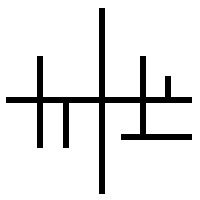I need to pick Cracker! Back up, i started reading it in 8th grade by borrowing it from my English teacher, found it years later on amazon. I just have an issue with not wanting to read books anymore after havign the fun sucked out of them due to public school book tests.
A couple, The Institute by Stephen King and Cosmos by Carl Sagan
I am Pilgrim - Terry Hayes & Cell - Stephen King
TCP/IP Illustrated, Vol. 1, it may be a little bit outdated, but the core concepts still stand.
Advanced Marathoning
Theory of Moral Sentiments, Adam Smith (project gutenberg)
It’s slow going because of the archaic style, but will be a revelation to anyone who thinks Smith doesn’t care about humanity.
I haven’t read Theory of Moral Sentiments yet, but Freakonomics did a fantastic podcast series on Adam Smith. They spend a lot of time on the Theory of Moral Sentiments and how what he actually wrote doesn’t match the current “perception” of him.
Stephen Kings IT. Also listening to Stephen King The Outsider in preparation of Holly coming out in September.
Linux Kernel development, Operating Systems Principals & Practice, Computer Systems A Programmer’s Perspective, and Forward the Foundation
An interesting time to be reading Forward…. Was that because of the TV series? Are you reading them in sequence?
I read all of the main sequence of Dune through to the Brian Herbert ending books. Quinns Ideas got me motivated enough to start reading those a few years ago. That got me to start Foundation next. I saw the various Asimov books referenced by the publishers and read most of the series. I still have Foundation’s Edge, and one other I’m not able to recall ATM, to fill in my entire collection from Robots through Foundation.
I loved robots and empire but foundation was waaay to much telling not showing. Are the latter books better?
I can read most of Asimov, but I don’t like the short stories from his early years as much. The broken but themed short stories are hard for me to stick with reading as a routine. His later stuff is much better than the earlier as far as books you can’t put down. They aren’t sequentially written though. The way Asimov ties in earlier story elements into his later books to interweave the different series together is interesting. Like you might totally miss many subtle references when reading the later books, and these have no impact on the story in question, but if you are reading them with the context of having already read the earlier books there are intuitive clues that guide you along. Like, there is an element of foreshadowing in the plot that is fun. Forward is good but also a slightly broken 3 part story from 3 different feature characters’ perspectives, but a sequential story in its own way. Still, I’m in a lull hiatus in my reading at the beginning of the third section. I just don’t do great with interruptions in fiction. I’ll probably end up binging the last section when I get around to it.
The sequels trend towards fewer, longer stories with a bit more characterization as compared to Foundation, but it never really stops being a series about moments in a larger history. I’d say give either prelude to foundation or Foundation and Empire a try, but odds are if those don’t grab you, none of them will.
(importantly for those who don’t know already, the publishing dates vary widely across the series - with Foundation, Foundation and Empire, and Second Foundation released in the 50s, and the surrounding prequels and sequels arriving decades later. This can manifest as a jarring shift in writing style if you read them in chronological order instead of publishing order.)
Appreciate the reply. Yeah it very much sounds like not something that would grab me. More Detective Bailey and less dictionary entries!
1Q84 by Haruki Murakami
What book are you on?
Almost done with book 1.
What do you think so far?
I’m enjoying it, but I’m a fan of Murakami’s work. It has the similar fantastical feel of some of his other works.
The only thing I do wish was different was that it didn’t drag on in some parts. It’s not frustrating or anything but it does feel like the point was established clearly and some of the additional description is superfluous at times.
What about you?
I’m a big fan of Murakami also and I loved reading these books. I have some gripes but I can’t get into them because of spoilers. I hope you keep enjoying it!
The enterprise of death, it’s a fun read
Reaper Man by Terry Pratchett
Latest Miss Peregrine book. Recently found out there were three more since I last read it, so I’ve been catching up this week.
Nicomachean Ethics by Aristotle and The Bridge on the Drina by Ivo Andrić. I always go over two books at the same time where one has heavier material (philosophy/history) and the other lighter that I can read when I’m tired.
The Joy of Abstraction by Eugenia Cheng
Category theory is awesome!
Yumi and the Nightmare Painter








